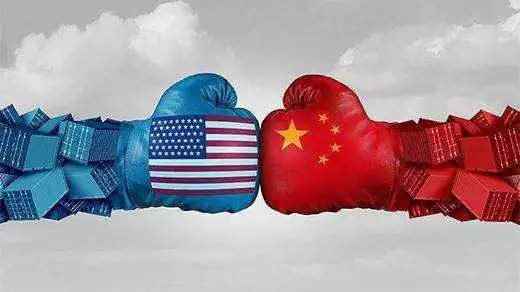
據美媒體紐約時報報道,特朗普政府今日正式將五個中國物體列入美國黑名單,也就是所謂的“實體清單”,進一步限制了中國企業獲得美國技術的能力。
據報道,這幾個機構和企業包括了曙光、Higon(海光),成都海光積體電路,成都海光微電子技術和無錫江南計算技術研究所。

美國商務部聲稱,這四家中國公司和一家中國機構加入“物體名單”對美國國家安全或外交政策利益構成風險。那就意味著這些企業除非能獲得美國豁免,否則無法獲得美國技術和晶片元件。
週五,特朗普政府將五個中國物體(曙光、海光、成都海光積體電路、成都海光微電子技術公司和無錫江南計算技術研究所)列入美國黑名單,進一步限制了中國獲取美國技術的機會,加劇了本已高度緊張的局勢。
美國商務部宣佈,將把四家中國公司和一家中國研究所列入“物體名單”,稱它們對美國國家安全或外交政策利益構成威脅。此舉實質上禁止這些物體購買美國技術和零部件,物體包括中國領先的超級計算機製造商之一曙光(Sugon),以及為曙光設計微晶片而設立的一些子公司。
此舉可能會嚴重削弱這些依賴美國晶片和其他技術製造先進電子產品的中國企業。物體名單上還包括海貢、成都海光積體電路、成都海光微電子技術公司和無錫江南計算技術研究所。商務部表示,這兩個公司引領了中國高效能運算的發展,其中一些應用被用於軍事應用,比如模擬核爆炸。
將中國公司列入物體名單可能會使兩國達成貿易協議的努力複雜化。此舉正值美國和中國官員在5月份貿易談判破裂後重啟談判之際,也正值特朗普和習近平準備下週在日本大阪舉行20國集團(G20)會議之際。
在之前,華為也被美國加入了這個清單。以下為紐約時報報道原文:
The Trump administration added five Chinese entities to a United States blacklist on Friday, further restricting China’s access to American technology and stoking already high tensions。
The Commerce Department announced that it would add four Chinese companies and one Chinese institute to an “entity list,” saying they posed risks to American national security or foreign policy interests. The move essentially bars the entities, which include one of China’s leading supercomputer makers, Sugon, and a number of its subsidiaries set up to design microchips, from buying American technology and components without a waiver from the United States government.
The move could all but cripple these Chinese businesses, which rely on American chips and other technology to manufacture advanced electronics. Those added to the entity list also include Higon, Chengdu Haiguang Integrated Circuit, Chengdu Haiguang Microelectronics Technology, and Wuxi Jiangnan Institute of Computing Technology, which lead China’s development of high performance computing, some of which is used in military applications like simulating nuclear explosions, the Commerce Department said.
It follows similar efforts to ban other Chinese tech companies from accessing American technology, including telecom equipment giant Huawei, which was added to the blacklist in May. The administration is also considering adding Hikvision, a surveillance-technology company, to the list, The New York Times has reported.
The addition of Chinese companies to the entity list could complicate the countries’ efforts to reach a trade deal. The move comes just as American and Chinese officials have restarted trade talks after they collapsed in May and as Mr. Trump and Mr. Xi prepare to meet next week at the Group of 20 meeting in Osaka, Japan.
The Trump administration has already imposed tariffs on $250 billion worth of goods from China and is moving forward with plans to add tariffs to an additional $300 billion of Chinese products unless China agrees to a trade deal.
But a fast resolution is looking increasingly unlikely. Both sides have stepped up their language on remaining tough in further trade talks and the Chinese government has said it is putting together its own “unreliable entities list” of foreign companies and people, an apparent first step toward retaliating against the United States for denying vital American technology to Chinese companies.
Sugon is one of China’s most important makers of high-performance computers and servers, with 10 out of the top 20 fastest supercomputers in China, according to China’s TOP100 rankings in 2018. The immensely powerful machines serve entities including China’s government and power weather prediction capabilities and its largest technology companies.
Most are also studded with American technology — in most cases the computers rely on a mix of microchips from Intel and Nvidia. By placing the company on the list, the Trump administration would effectively cut it off from the tiny brains it needs to make the billions of calculations required to model weather patterns and support video apps and online shopping.
Also on the list was a Sugon subsidiary that had formed a partnership with the American chip maker Advanced Micro Devices to create microchips that could satisfy security demands for Chinese government customers. Some Chinese officials said the chips could be used in a new generation of faster supercomputers. By relying on chips made by AMD and Intel, Sugon’s supercomputers are able to run a wider array of software than some of the country’s faster computers built around domestically produced chips.
With just over $1 billion in revenue last year, Sugon is tiny compared to Huawei, which was placed on the entity list last month. Still, its exclusion from American technology will represent an especially bitter pill for Beijing to swallow, as its supercomputers form the core of some of the Chinese government’s most sensitive and important systems.
Sugon supercomputers support State Grid, the monopoly that runs China’s electric grid; China Mobile, the country’s largest telecom services provider; and the China Meteorological Administration, which runs weather prediction. It also makes data centers for companies like e-commerce giant JD.com and Bytedance, the owner of social media app TikTok.
The companies could still obtain a license to purchase American technology. But their presence on the list suggests that they would receive intense scrutiny, and such an approval might be unlikely.
 知識星球
知識星球
朋友會在“發現-看一看”看到你“在看”的內容